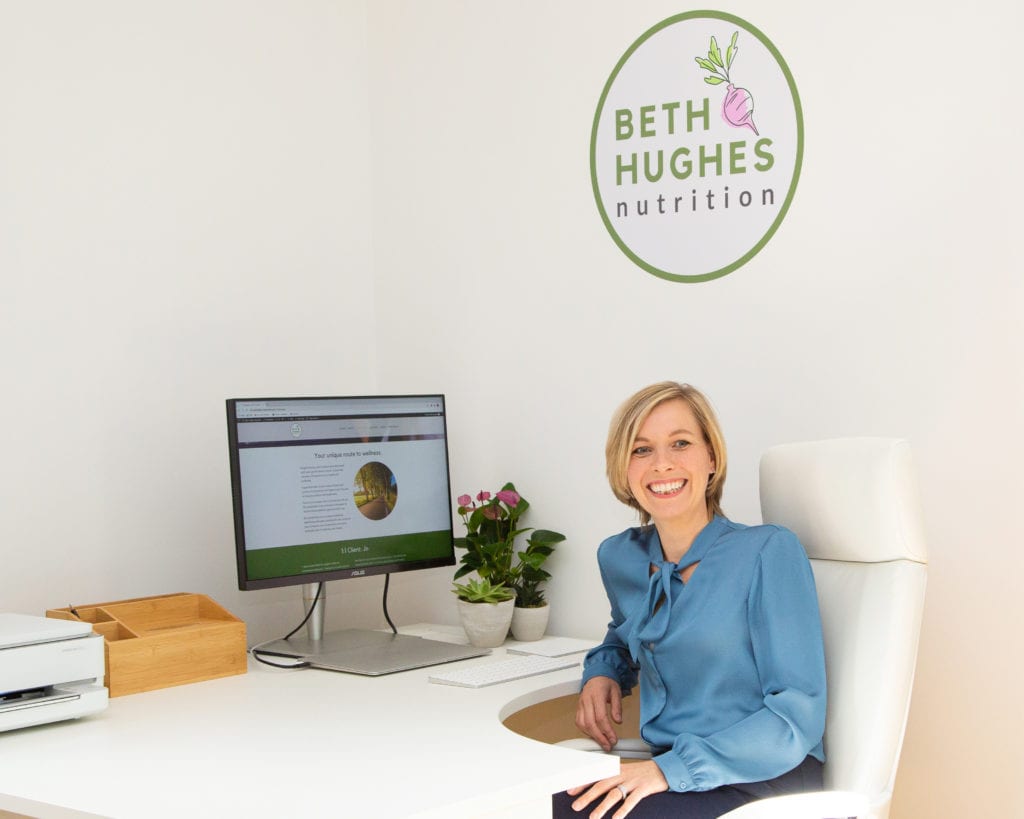They say ‘forty is the new thirty’ and there’s no doubt that in many ways we are much younger than are parents and grandparents were at a similar age. However, there’s no denying that many women come up against new challenges as they move through our forties and beyond.
Our generation were told we could have it all and many of us took that at face value. We embraced the opportunity to forge careers alongside raising a family, running a home, keeping fit and looking great….to in effect be ‘superwomen’.
We were told “fat is bad”. Weight management is a matter of “calories in versus calories out”, just “eat less and move more” . Followed more recently by “carbs are bad” and “meat is bad”. Many of us will have a history of yo-yo dieting and depriving ourselves of foods to achieve a certain look.
A period of transition
Our forties and fifties can be a really challenging time. In addition to potentially still having children at home, elderly parents who need support, a ‘day job’ as well as all the things we do at home, the hormonal changes that come with perimenopause and menopause come in to play.
Maybe you’ve noticed you have less energy, wilder mood swings, worsening sleep and/or stubborn weight gain? Perhaps your digestion is a challenge, more foods ‘disagree’ with you? You’re constipated and bloated or your periods are much heavier?
Perimenopausal symptoms such as hot flashes, anxiety, brain fog and poor sleep can really take their toll. Many of the women I see in clinic have got to the point where they’re running on empty and just don’t know what to do for the best. It’s time to take stock – as a wise person once said…
“If you don’t make time for your wellness, you’ll be forced to make time for your illness.”
Anonymous
Nutrition can be confusing at the best of times, but perhaps more so as we enter our forties and beyond. The diet and lifestyle we have adopted up to this point no longer seem to serve us. It’s time to take stock and get back to basics and put in place some simple, achievable, sustainable habits that will serve us well now and into the future.
So, how should I eat in my forties?
Food is about so much more than just fuel, it’s about nourishing your body, ensuring it has all the nutrients in needs to do all the amazing things it does for you every day. Living in a way that supports your body’s systems, so that it can work optimally. Giving you the energy you need to do the things that you love with the people you love. It’s amazing what our bodies can do when we provide them with what they need. Here are some basic principles that I use with my clients:
- Eat wholefoods. Foods that are as close as possible to their natural state (rather than highly processed) will provide more nutrients and less anti-nutrients.
- We need fat in our diets. Fats are essential for many aspects of health, including brain function, healthy cell membranes (which in turn are essential for hormone function) and our ability to take utilise certain fat soluble vitamins.
- Eat protein, healthy fats and carbohydrates with every meal. This will not only help provide your body with the nutrients it needs to function well, but will also support stable energy levels.
- Eat enough! Many women I see are not eating enough. Avoid missing meals and snacking instead.
- Reduce caffeine and don’t drink on an empty stomach in the morning. Caffeine can spike blood sugar and exacerbate anxiety.
Want to know more?
If you want more detail about WHAT and HOW to eat in your forties and beyond, in a balanced, sustainable way. If you want to eat to support:
- Energy levels
- Hormone balance
- Digestion
- Detoxification
- Gut health
- Mental health
- Brain function
- Sleep
- Healthy weight

I’d love you to join me for my ‘Nutrition foundations for perimenopause’ programme starting Thursday 8th Sept at 7.30pm. It’s a live programme with me running over 5 sessions, with a sixth drop-in session a month later to track progress.
The group is kept small so there’s plenty of opportunity for discussion and individual questions. You can read all about it here.
